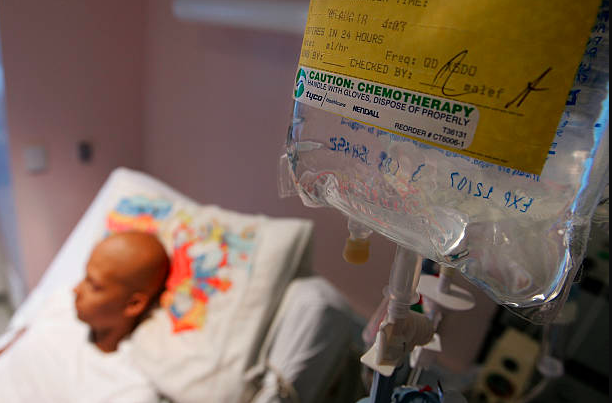Scientists have expressed their enthusiasm for a new drug that has shown promise in treating a particularly challenging and aggressive type of cancer.
A team of researchers from Queen Mary University of London has announced a significant breakthrough in their treatment, which has shown promising results in improving long-term survival rates.
The study revealed that the treatment has quadrupled three-year survival rates and extended the average survival time by 1.6 months.
Experts in the field have noted that the recently developed medication, which functions by depriving the tumor of its source of nourishment, represents a significant breakthrough for mesothelioma treatment.
It is worth mentioning that this is the first drug of its kind to be introduced in the past two decades. Mesothelioma is a form of cancer that arises in the protective lining of certain organs, particularly the lungs.
The ATOMIC-meso trial, sponsored by Polaris Pharmaceuticals, took place at 43 centers across five countries from 2017 to 2021. Patients involved in the study were monitored for a minimum of one year.
A recent study published in the journal JAMA Oncology revealed that individuals who received pegargiminase and chemotherapy had a survival rate of 9.3 months on average, while those who were given the placebo and chemotherapy survived for an average of 7.7 months.
It is commonly associated with exposure to asbestos. According to data from Cancer Research UK, there are approximately 2,700 new cases of mesothelioma reported annually in the UK.
Every year, there are nearly 2,400 fatalities, with only a small fraction of individuals expected to live beyond 10 years after being diagnosed.
The new study, conducted by Professor Peter Szlosarek at Queen Mary, involved administering chemotherapy to all patients every three weeks for a maximum of six cycles.
Half of the participants were administered injections of a new drug called ADI-PEG20 (pegargiminase), while the other half received a placebo, which is essentially a dummy drug, over a period of two years.
Wonder Drug Pegargiminase-Chemotherapy Boosts Mesothelioma Survival in Groundbreaking Study

According to the researchers, patients who received pegargiminase-chemotherapy experienced an average “progression-free survival” of 6.2 months, while those who received the placebo and chemotherapy had an average of 5.6 months.
“In this groundbreaking study, a phase 3 trial was conducted involving 249 patients with pleural mesothelioma. The results revealed that the use of pegargiminase-chemotherapy led to a remarkable increase in median overall survival, extending it by 1.6 months.
Furthermore, the survival rate at 36 months was quadrupled compared to those who received placebo-chemotherapy. These findings have significant implications for the treatment of pleural mesothelioma,” the authors stated.
“The chemotherapy treatment using pegargiminase was found to be well tolerated, and no new safety concerns were identified.”
According to experts, this groundbreaking achievement marks the first time in two decades that a drug targeting cancer’s metabolism has been successfully combined with chemotherapy for this particular disease.
After years of dedicated research, Professor Szlosarek made a significant breakthrough in understanding mesothelioma cells. He discovered that these cells are deficient in a crucial protein called ASS1, which is responsible for producing the amino acid arginine.
With this knowledge, the new drug was developed. ADI-PEG20 functions by reducing arginine levels in the bloodstream. This hinders the growth of tumor cells that are unable to produce their own arginine due to a deficiency in an enzyme.
